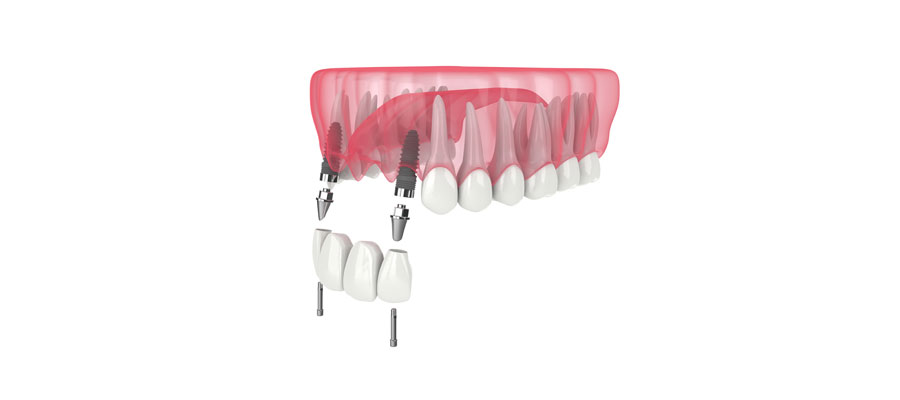What are prosthetics and what does it include?
Prosthetics in dentistry deals with the replacement of lost, damaged or missing teeth or parts of teeth. The goal of prosthetics is to restore the function of the teeth and enable patients to have a beautiful smile.
There are different types of prosthetic replacements, but before the patient switches to prosthetic therapy, they should go through a detailed examination to determine which solution suits his needs. Prosthetic treatment requires careful planning, taking into account the aesthetic and functional requirements of the patient.
Prosthetic treatments include the production of crowns, bridges, partial and total dentures, as well as replacing teeth with implants.
- Crowns are thin caps that are placed over an existing tooth to restore the function and appearance of the tooth.
- Bridges are used to replace one or more missing teeth
- Dentures are mobile replacements that replace several teeth or the entire dental arch.
- Implants represent a replacement for the root of a lost tooth and they are installed in the jaw to replace the lost tooth. Dental implant restoration involves placing an implant in the jaw and placing a crown on top of the implant to restore the function and appearance of the tooth.
Prosthetics are important for patients who have lost teeth for various reasons, such as trauma, periodontal disease or caries. The compensation provided by prosthetics can improve the patient’s ability to speak and chew food, improve the aesthetics of the smile, and prevent further damage to the teeth and surrounding tissues.
For the best results, patients should visit the dentist regularly so that their crowns, bridges, implants and dentures are clean and healthy with regular checkups.
FAQ
Let’s answer your most common questions.
Dental prosthetics is a branch of dentistry that deals with the replacement of lost or damaged teeth, in order to restore the function of chewing, speaking, swallowing and smiling to the patient.
Dental implants are considered the most stable form of dental prosthetics because they are implanted in the patient’s jaw. Installing a tooth implant is ideal for replacing a missing tooth, and after installation, the implant takes over the function of the tooth. In this way, one or more or even all the teeth in the jaw can be replaced. They have a natural look and feel, are durable and can last for many years if properly maintained. The procedure is easy and routine and is performed under local anesthesia. The procedure is painless.
Implant installation consists of two phases and the only problem is that it is necessary to take a break of several weeks or months, but during that time patients can wear a temporary crown or bridge. This will allow them to function normally and is also aesthetically acceptable. The advantages of implant installation are multiple: they are more durable and much stronger than prostheses and bridges, they are placed directly in the jawbone replacing the tooth and root, they give you a natural look because the implant is placed, in one part, directly in the bone, while the crown is placed next to the gums. healthy teeth remain intact and are not ground down, and most importantly dental implants are the only biologically correct way to replace the missing tooth/teeth.
The duration of prostheses depends on the type of material they are made of, the way they are used and maintained. In principle, partial dentures should be replaced every 5-7 years, and total dentures every 7-10 years.
Regular and good maintenance of teeth and gums through good oral hygiene (proper tooth brushing, flossing and/or interdental brushing and visits to the dentist), as well as avoiding risk factors such as smoking and excessive consumption of sweet foods, can help prevent tooth loss and needs for dental prosthetics.
As with any medical procedure, there are potential risks associated with dentures, including infection, nerve damage, and allergic reactions.
Don’t miss our promotions and advice..
Be the first to know.



